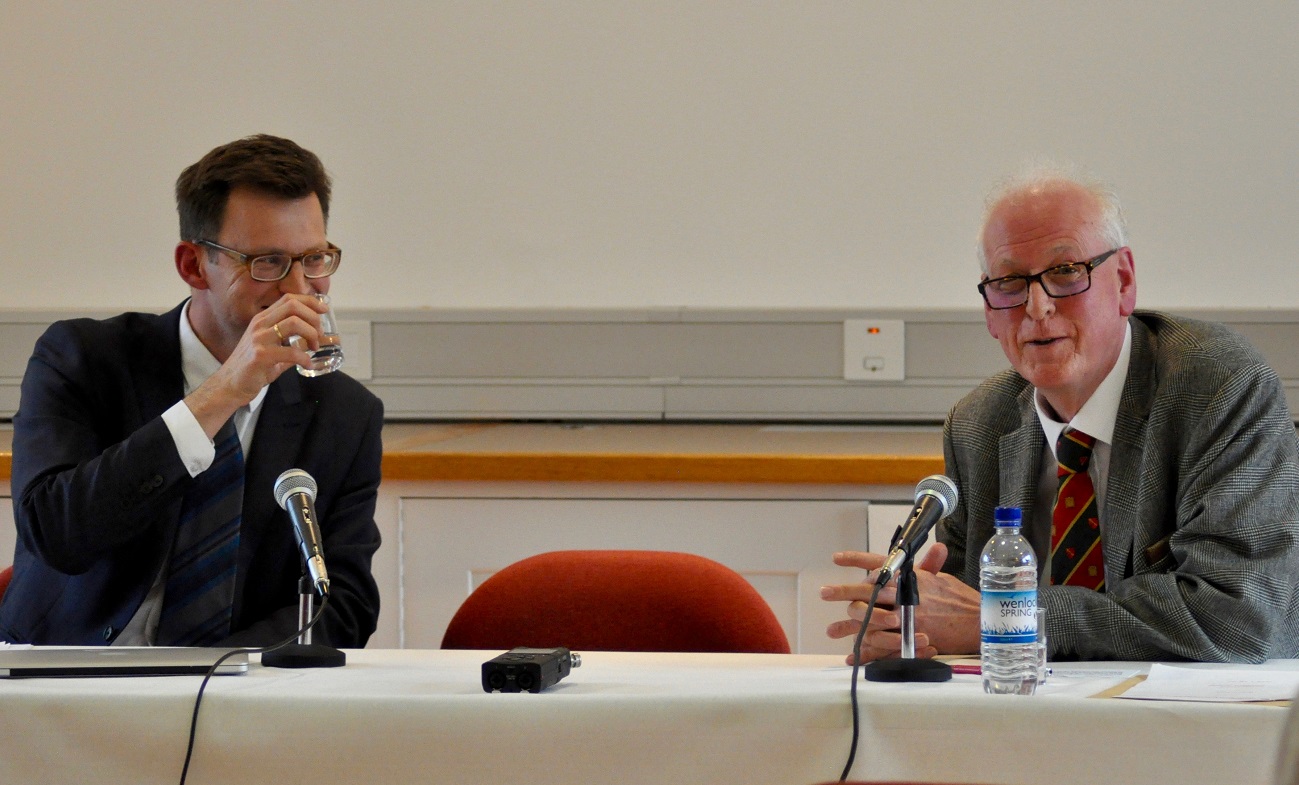Politics and Dis/Agreement
Duration: 1 hour 33 mins
Share this media item:
Embed this media item:
Embed this media item:
About this item

| Description: |
How do disagreement and eventual agreement function in politics? Are the ways we conduct political discourse changing? The last year has arguably seen a loss of the virtues of reasonable, textured disagreement in politics globally, and a rise of either-or binary divisions. Peter Hennessy and Adrian Pabst will discuss the UK and US political scenes and suggest ways of improving political disagreement.
This event took place on Friday 5 May 2017 and is part of the VHI 2016-17 series on Dynamics of Dis/Agreement. For more details visit http://www.vhi.st-edmunds.cam.ac.uk/events |
|---|
| Created: | 2017-05-12 13:04 |
|---|---|
| Collection: | Von Hugel Institute |
| Publisher: | University of Cambridge |
| Copyright: | Von Hügel Institute |
| Language: | eng (English) |
| Keywords: | Disagreement; British politics; International Politics; Brexit; |
| Abstract: | Professor Peter Hennessy, Baron Hennessy of Nympsfield, FBA, is an English historian and Attlee Professor of Contemporary British History at Queen Mary University of London. He is the author of numerous books including Having It So Good: Britain in the 1950s (Allen Lane), which won the 2007 Orwell Prize for political writing. He was made a crossbench life peer of the House of Lords in 2010 and has broadcast regularly on BBC Radio 4.
Adrian Pabst is Reader in Politics at the University of Kent. He is the editor of The Crisis of Global Capitalism (Wipf & Stock, 2011), co-editor of Blue Labour: Forging a New Politics (IB Tauris, 2015), and the author most recently (with John Milbank) of The Politics of Virtue: Post-Liberalism and the Human Future (Rowman & Littlefield, 2016). |
|---|---|

